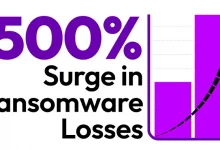In today’s digital age, information networks play a crucial role in our daily lives. We live in a world where information is readily accessible, thanks to the evolution of information networks. These networks have transformed the way we communicate, learn, and interact with the world around us. They have also had a profound impact on various industries and the global economy.
The beginnings of information networks can be traced back to the invention of the telegraph in the 19th century. This groundbreaking technology allowed people to transmit information over long distances using electrical signals. However, it was with the advent of the internet in the late 20th century that information networks truly took off.
The internet revolutionized the way we share and access information. It connected people from all over the world and provided a platform for the exchange of knowledge, ideas, and resources. The internet also introduced the concept of hyperlinks, allowing users to navigate from one webpage to another seamlessly. This made information easily discoverable and transformed the way we conduct research and gather data.
The evolution of information networks continued with the emergence of social media platforms. Websites like Facebook, Twitter, and Instagram connected individuals on a personal level, fostering new ways of communication and social interaction. These platforms allowed people to share their thoughts, photos, and experiences instantaneously, bridging geographical boundaries and bringing people closer together.
The impact of information networks on various industries cannot be underestimated. The rise of e-commerce, for example, is largely attributed to the internet and information networks. Online shopping has become a common practice, with consumers able to browse and purchase products from anywhere in the world. This has resulted in the growth of global markets and the accessibility of goods and services like never before.
Information networks have also revolutionized the field of education. E-learning platforms have become increasingly popular, providing students with the opportunity to access educational resources and courses remotely. The pandemic further accelerated this trend, as schools and universities shifted to online modes of learning. Information networks have made education more accessible and flexible, opening up new possibilities for lifelong learning.
However, the evolution of information networks has not been without challenges. The accessibility of vast amounts of information has led to concerns regarding the spread of misinformation and fake news. In an era of information overload, it has become increasingly important to verify the credibility of sources and critically evaluate the information we consume.
Moreover, the rapid development of information networks has raised concerns about privacy and data security. With the amount of personal data being shared online, individuals and organizations are at risk of data breaches and cyberattacks. Striking a balance between the convenience of information networks and safeguarding our privacy has become a critical issue.
In conclusion, the evolution of information networks has had a profound impact on our lives, transforming the way we communicate, learn, and interact with the world. These networks have revolutionized various industries, connecting people from all over the world and enabling the exchange of knowledge and resources. However, as we continue to navigate this digital landscape, it is important to be mindful of the challenges associated with information networks and take steps to ensure the responsible use of these powerful tools.






hello!,I love your writing very so much! share we communicate extra about your article on AOL? I require an expert on this space to solve my problem. Maybe that’s you! Having a look forward to peer you.
We are open for dialogue) Always here)